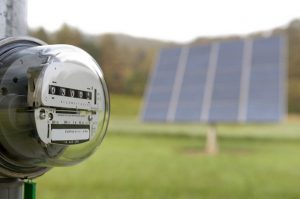Environmental Impacts of Energy Transitions in Underserved Communities
 Institution: University of Maine
Institution: University of Maine
Sponsor: U.S. Environmental Protection Agency
Project Summary
Community-based sustainable energy (renewable energy, energy efficiency and conservation) initiatives have been growing across the United States as local governments add climate and energy committees and sustainability coordinators to their staff and operations. However, similar to the broader history of energy development, there are disparities between underserved communities (as defined by the grantor) and others. The proposed work seeks to understand how socioeconomic, cultural, behavioral, institutional, and systems factors drive individual, governmental, and community decisions regarding sustainable energy adoption in underserved communities. In particular, we seek to understand how statewide local energy action networks (LEANs) and targeted interventions can support sustainable energy adoption in underserved communities. Three levels of study scope are proposed: nationwide, statewide, and community-level. The nationwide study will collect data through literature review and targeted interviews on the different structures and approaches of existing LEANs in each state across the U.S. and how well they support underserved communities. The statewide study includes an ethnographic study (from the inside out via the perspective of participant-researchers) of a LEAN as it emerges: the Maine Community Resilience Partnership, which includes a focus on local energy and climate action; annual network analysis to identify peer-to-peer collaboration and learning; and targeted interviews and discussion groups with participants and potential participants from underserved communities across the state. The community-level study will compare the experiences, factors, and decision drivers of 10 underserved communities participating in the Maine Partnership – 5 indigenous and 5 other rural/low income – through field observations, interviews, and annual community surveys. Targeted interventions in these communities will include a Sustainable Energy Coordinator position to serve the indigenous tribes and implementation of at least one of the high-priority energy actions identified through the community workshops that are required as part of the Maine Community Resilience Partnership. Community surveys before and after these interventions will provide insight to their ability to raise awareness, interest, and improve knowledge of local energy issues and potential solutions. Overall, the proposed work will advance understanding of the decision drivers and factors affecting underserved communities as they consider sustainable energy adoption, which will inform initiatives to advance energy justice more broadly.
Research Team
- Team Lead: Sharon Klein, Associate Professor, School of Economics, UMaine
- Caroline Noblet, Associate Professor, School of Economics, UMaine
Resources
- Mitchell Center Article
Sharon Klein is helping to galvanize community energy in Maine - Mitchell Center Sustainability Talk, April 2023
LEAN In: Building and researching a statewide Local Energy & climate Action Network in Maine
